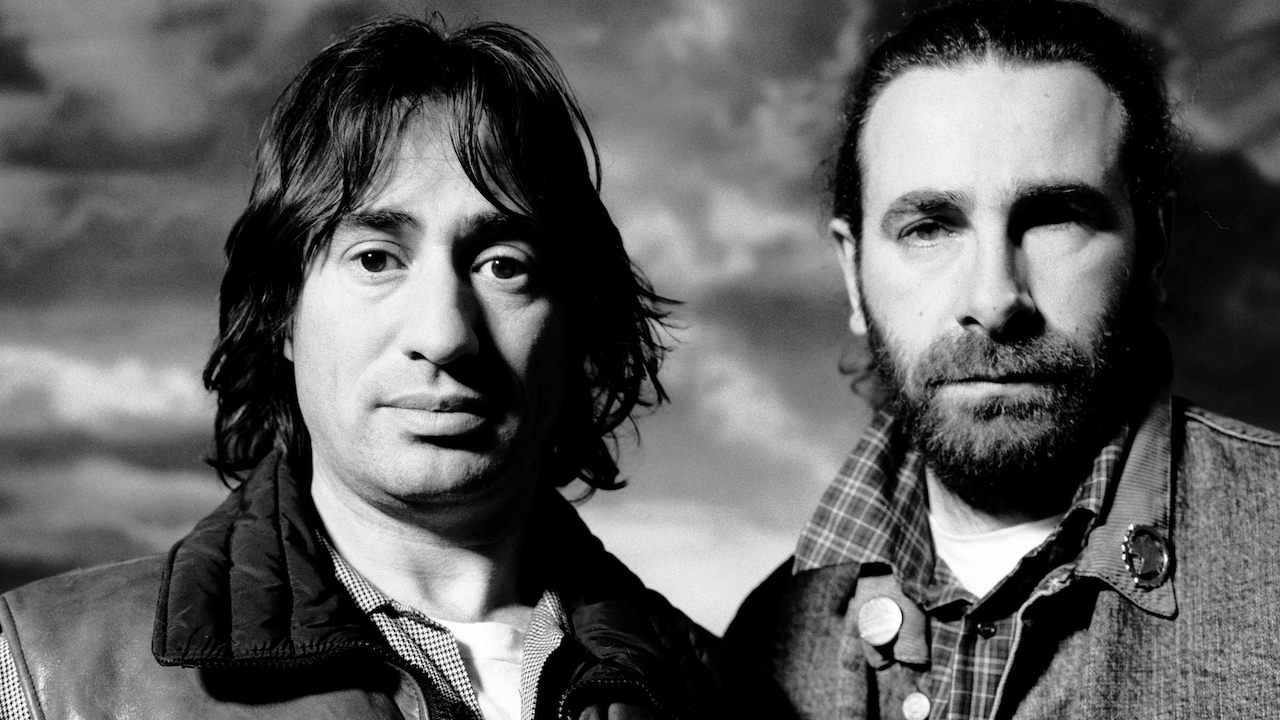
"The two main writing teams – myself and Gouldman, Godley and Creme – really started to push in opposite directions,” was how Eric Stewart remembered the recording sessions for 1976's 10cc album How Dare You? As soon as the sessions were finished, Kevin Godley and Lol Creme upped sticks and launched a new career as Godley & Creme.
The two men immediately set about making an album of their own, primarily to promote the Gizmotron, a guitar effects device and prototype synthesiser.
What was planned as a single album soon became a triple with a droll narrative written and performed by comedian Peter Cook. Amid the sprawling, unfocused opus that is Consequences lie seven songs of varying excellence. Five O’ Clock In The Morning was released as a single and premiered on Top Of The Pops. It was an overtly mild-mannered number, sounding for all the world like a scholarly outtake from Sgt. Pepper, though the Gizmo is conspicuous by its absence.
Dismissed by critics and the public alike, Consequences was an unjustified flop, though the retail price of £12 doubtless helped to invoke the law of diminishing returns.
“We locked ourselves away for 18 months,” Creme recalls. “It was a great experience and I loved every minute of it. I know we went way over budget, but I wouldn’t have missed it for the world. We had the chance to work with Peter Cook for three months. He was warm‑hearted and generous – a comic genius really. And then we got to work with Sarah Vaughan on Lost Weekend – what a superb treat for both Kev and myself.”
Before the dope dreams had settled, the Mancunian musos decamped from Phonogram to Polydor, and within a year recorded and released L, a self‑healing antidote to the excesses of Consequences.
“This is my favourite Godley & Creme album,” says Godley. “Why? Because we were starting from scratch when we made it. Hence the L plate! L was our way of bypassing the radar and our own brain drain. As we weren’t following up a hit, there were zero expectations from the record label and we knew our music needed seriously rehabilitating so we stayed invisible and downsized our approach.”
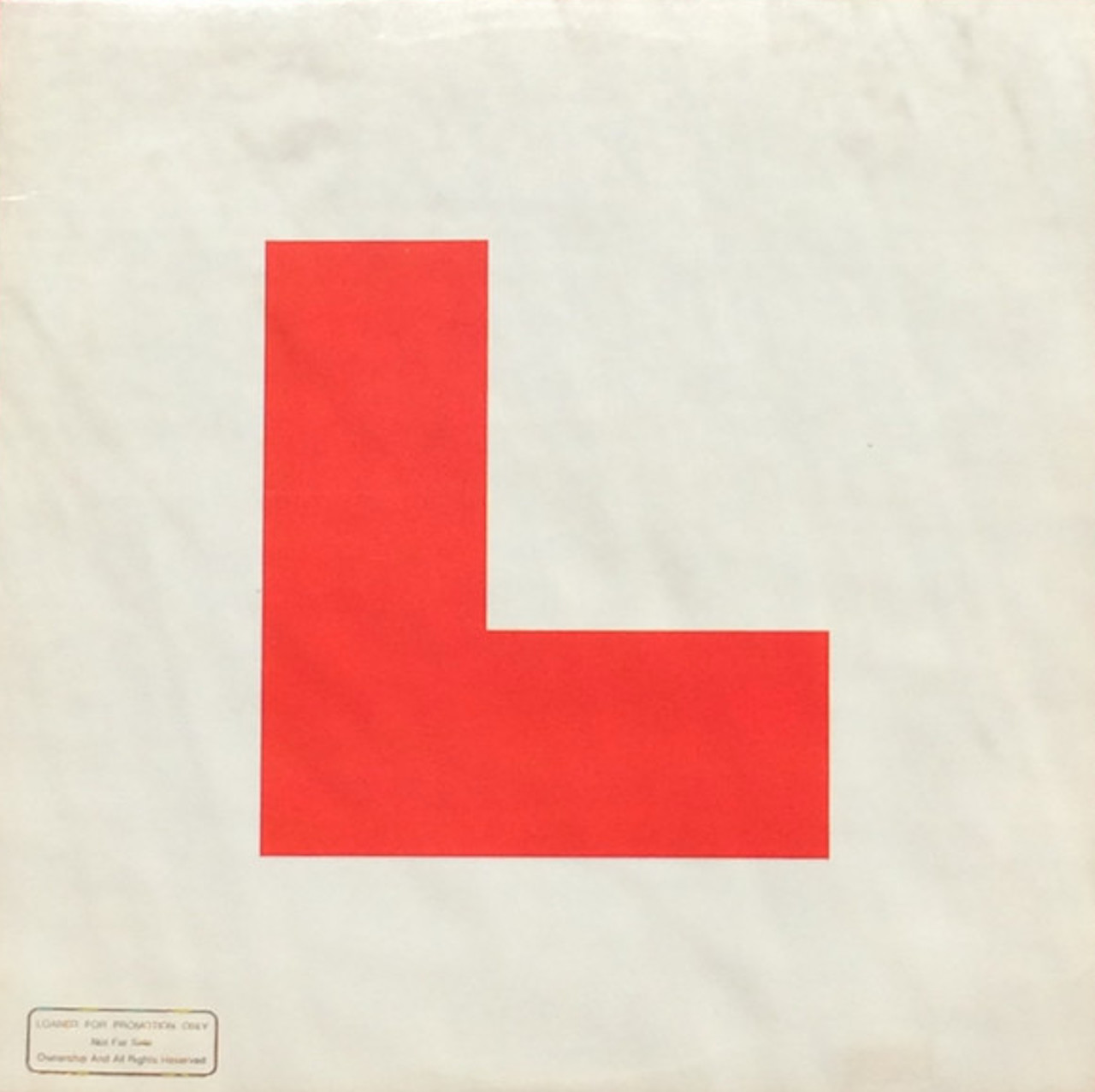
Recorded at Surrey Studios in Leatherhead, L marked a triumphal return to form. The songs tackle a range of themes that suggest the pair may have been spending some time on the psychiatrist’s couch enumerating their fears, phobias and inhibitions, from the suicidal impulses of This Sporting Life to the schoolboy tyranny of Punchbag and the cloistered suffocation of Group Life. Only the Zappa-esque Sandwiches Of You offers a light bite of relief, with cannibalistic overtones predating Hannibal Lecter by several meal times.
Creme remembers. “While we were recording L, The Police were also using the studio during the day and so Kev and I lent them our instruments and they worked really hard. Then Miles Copeland would come down and say, ‘That’s a load of bollocks, do it again!’ It may have helped them but it wouldn’t have helped us. We were thankfully insulated from all such pressure.”
Never standard-bearers for mediocrity, the release of Freeze Frame (1979) found the pair in an even more adventurous mode. Both agree they now saw the attraction of using the studio as a “writing tool” to continue advancing their creative curiosities.
As Godley elaborates: “Loops, echoes, effects boxes, harmonisers, you name it, we used it. Freeze Frame took this approach one step further. Example: I Pity Inanimate Objects. My original vocal was a monotone – one note all the way through. Not easy, I must say. Then we pushed the recorded vocal through a harmoniser [mostly used today to retune vocals] that was attached to a keyboard, which meant Lol could play my voice, like a piano, and make it do anything and go anywhere.
“The lyric was essentially about me exploring immobility in a moving world. How that might feel, look, hurt, frustrate. I was focusing more on lyrics around then.
“Mugshots was one of those songs that grew from the sound of the word. Often there’s nothing you’re looking to say particularly in a song, but a sound, a word, a noise, anything that can instigate the germ of one and start to move you towards a result. If you’re open to where it’s taking you, it can gather layers of sense, musicality and mood en route, so I guess it’s like creative discipline.
“Your mind/radar trains itself to recognise what’s useful and reject what isn’t, be it a painting, filmmaking, sculpture, photography or music. It’s all the same under the hood really. It just comes out differently.
“Besides the creative aspect of working with Phil Manzanera on the album, it was also a major thrill to have Paul McCartney sing backup on Get Well Soon. He simply reacted to what we’d done with three or four vocal overdubs and gave it a whole new life.”
1981 album Ismism was recorded at a chaotic point in their lives. “Music was changing, we were changing,” recalls Godley. “This was a seriously busy and schizophrenic time.”
They were now much sought after as video directors and had also been busy installing a small studio in Creme’s house when Godley slipped a disc. It reduced his ability to sing or stand for any length of time, and playing the drums was definitely out of the question, forcing them to employ Linn drums and programmable synths. Less singing and more talking led to the recording of the appetising starter, Snack Attack: an epicurean wrapper’s delight.
Seeing adversity as an opportunity, Godley produced further oral outings, as with The Problem, Ready For Ralph, Lonnie and The Party, the latter nothing short of a scathing monologue on the mores of showbiz sychophants.
As Godley explains: “The Party was a musical documentary of sorts, detailing people and events at a real party at our house.”
At one point Godley & Creme are accosted by a guest who, taking stock of their ‘shagged out chic’ offers a caution: ‘And it must be a blow to the ego, what! But forget about this video rot/And write yourselves a hit or three/Like I’m Not In Paris or The Dean And Me/I mean I really don’t like your stuff very much/It’s too avant-garde and aggressive and butch.’ You could hardly imagine U2 or Coldplay willing to rib themselves so mercilessly.
Life imitated art on this occasion as two songs lifted from the album gave them their first Top 10 hits after five years as a deadpan alley duo. Under Your Thumb nails a brief encounter between the quick and the dead, while Wedding Bells – an out-and-out denial of love – sounds uncannily like a fitting sequel to I’m Not In Love.
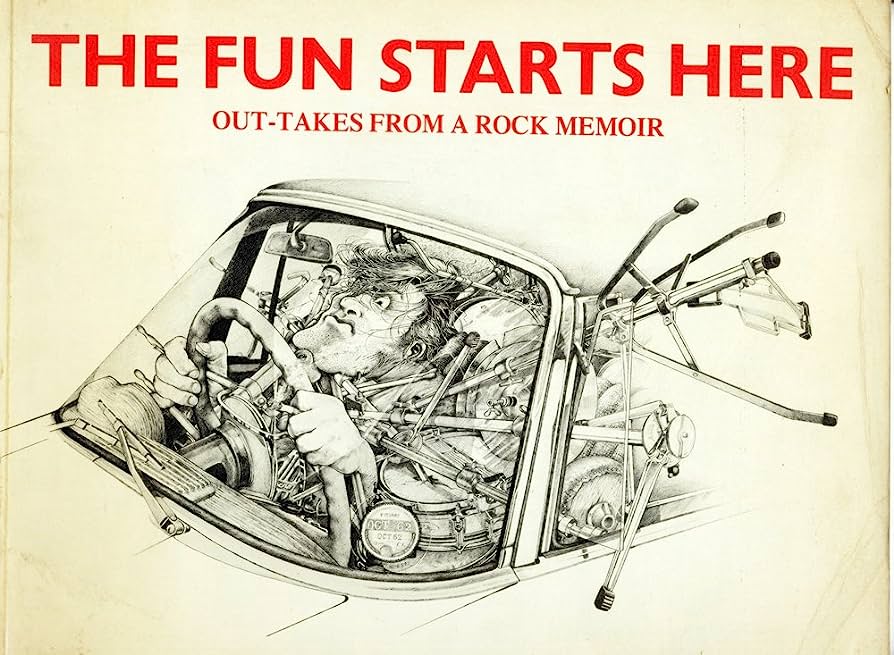
In the same year, Godley & Creme also wrote and illustrated their first (to date) book: The Fun Starts Here (Out-Takes From A Rock Memoir), which faithfully details the boorish and crass excesses of the music business. “It took two years to produce the artwork, though the text came very easily,” Creme explains. “It was very much based on our own experiences in the music business.”
Whereas films such as That’ll Be The Day and Stardust may have done much to invalidate rock’n’roll as an art form, The Fun Starts Here succeeds in knocking them all into a coked hat.
Their fourth album, Birds Of Prey, was released in 1983, at a time when the pair were more deeply engrossed in directing music videos and Godley was still suffering from back problems.
“I don’t think we were quite in the mood for recording when we made this record,” says Godley. “A lot was happening on the film front so our focus wasn’t as tight as it could have been. There are a few sparkles – it wasn’t a complete failure. It was e-drums all the way, with a bit of real percussion here and there, and I could actually stand up and sing by then.”
The a cappella opener, My Body The Car, is a highlight, as too are Worm And The Rattlesnake, Save A Mountain For Me and the goosebump-inducing closer Out In The Cold, though much else makes for an uneven album.
The old guard was changing when Cry (1985) returned them to the singles charts. “Cry was a strange one,” says Godley. “We’d actually written the first verse 15 years before recording it. We could never get past the opening refrain until working with Trevor Horn and his team loosened us up to think of it in a different way. We were originally hoping to write a far more complex, perhaps more obvious song, but the process of action and reaction within the Sarm studio [in west London] setup took it in a very stripped-down and atmospheric direction.”
The song also benefited from one of the most beguiling videos of the time, though even this was a fortuitous accident. “The video – interesting as it is – was in fact Plan B. Plan A was to have Torvill and Dean ice skate to the song, but our schedules weren’t compatible, so faces, faces and more faces was the last-minute alternative. Thank fuck for faces!”
A further five years elapsed before the release of Goodbye Blue Sky (1988), and there’s more than a whiff of fire and brimstone about the whole album. The air of portentous doom was due in part to Godley’s involvement with a short-lived organization called ARK, that he had co-founded with Chrissie Hynde, Bryn Jones, Isaac Tigrett and Matthew Freud, among others.
“We were concerned with environmental issues and how to bring them to the public’s attention,” states Godley. “We wanted to push home a message that wasn’t as ubiquitous as it is now, and that slow sense of impending apocalypse inevitably seeped into the songs.”
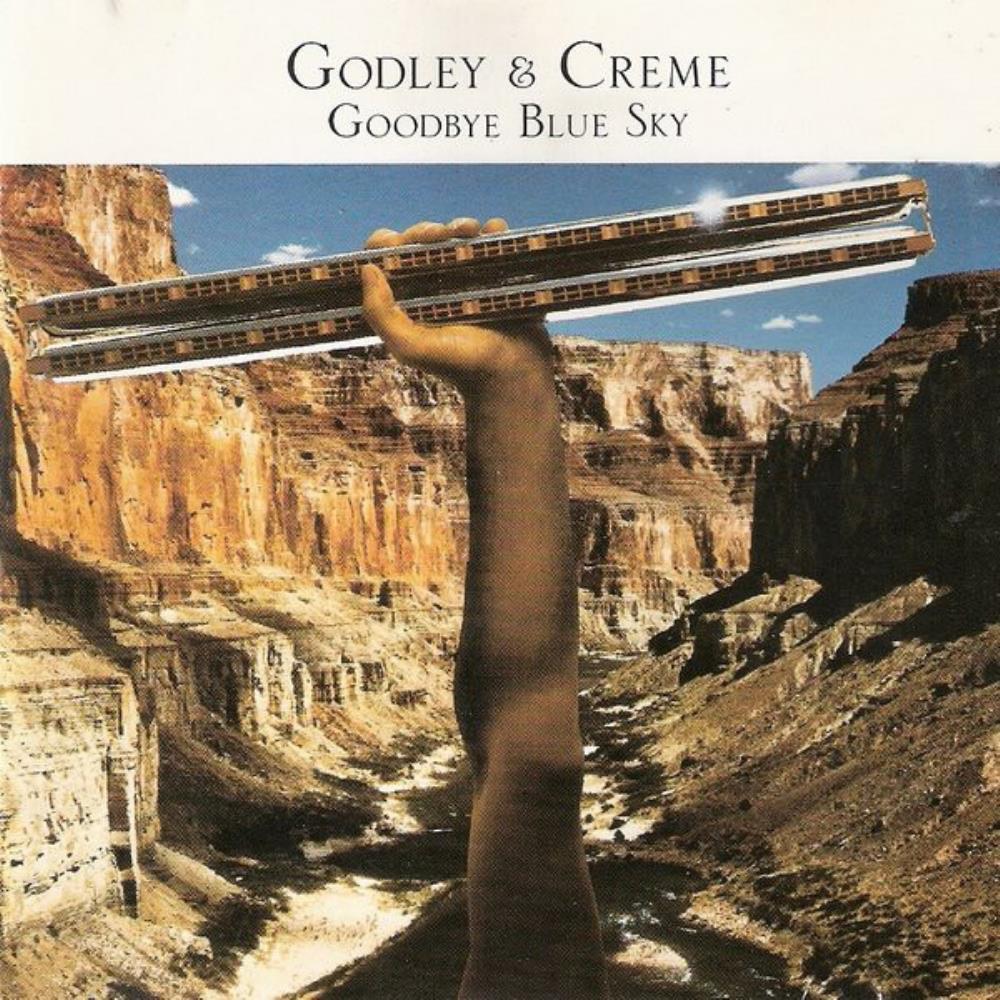
Even if advocating retribution, Godley and Creme were both in buoyant mood while recording the album, as Creme recalls.
“This was all done at my home studio,” he says. “It was a beautiful summer and we were enjoying working together on an album again. We went back to basics for a more organic feel. We decided we could replace orchestrations with just a rhythm section and harmonicas, so we auditioned a number of players and finally choose Mark Feltham and Mitt Gamon. And for backing vocals we had the Londonbeat, whom we had worked with before. We wanted to recreate that band feel all over again.”
“I really like this album,” agrees Godley, “because it has a definite style and approach. We were kicking against electronica to a degree and aiming for a more soulful result. Drums were back on the agenda and we’d found a way to shoehorn a minimal kit into Lol’s studio room.”
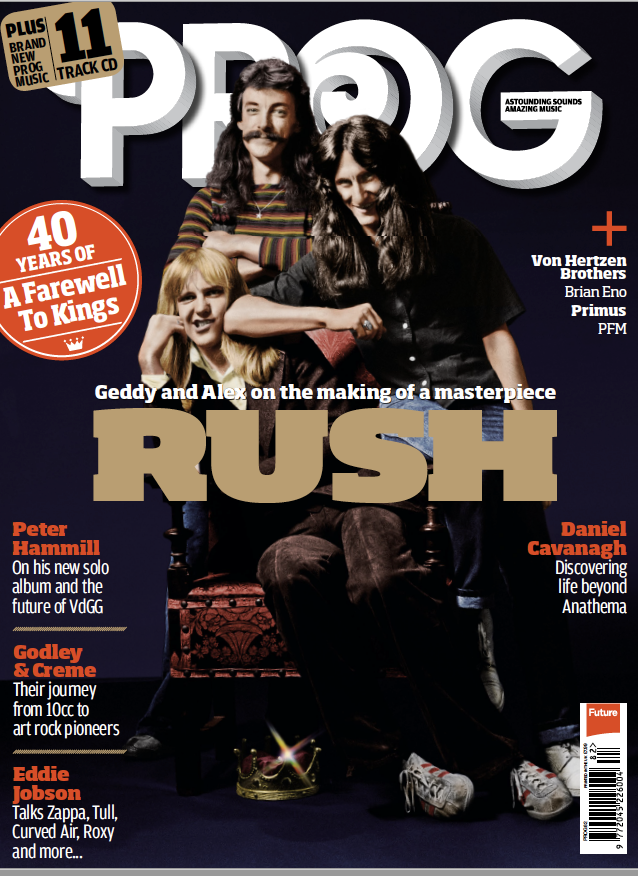
A short time after the completion of the album the pair decided to part company. Godley, in his autobiography Spacecake, pays a tribute to his former colleague. “It was sad but timely. After 25 amazing, inspiring, enriching and life-defining years, we went our separate ways. Thank you Lol, you were the best friend and creative partner I could’ve wished for in the entire world… but please forgive me, I have to step off this cliff into something new…”
The ever-philosophical Creme entertains no regrets, and looks back fondly on his time as one half of Messrs Godley & Creme, and with equal affection upon the time he spent as part of 10cc when they almost got to boss the world around.
“I loved writing The Dean And I and The Worst Band In The World,” Creme says. “They epitomise the arrogance of youth. We were young, we were determined and we felt immortal, I suppose. But how many people ever get the chance to be in that position, to experience what we went through?
“We could just go into the studio and record with confidence because we were so well-rated that we thought people would dig it – and they did. And we were utterly grateful for the opportunity to do what we wanted, and I don’t think any of us would have any complaints about that. We were the luckiest bastards on the planet.”
This article was first published in Prog, issue 82, 2017.







